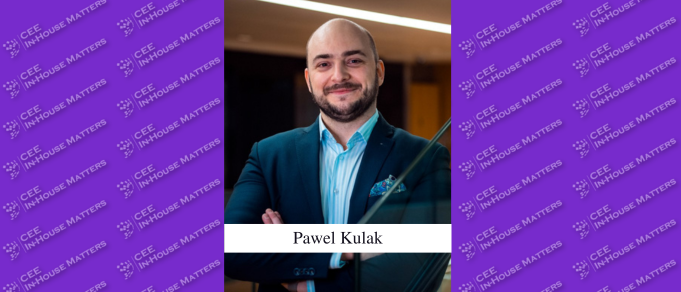Does buying land make you the owner of the buildings on that land as well? In many situations, the answer is yes, but in the context of the public sale of property within enforcement proceedings, this is not always the case.
Four Years With a New Civil Code – Where Are We Now?
It has been more than four years since new legislation revolutionizing Czech private law came into effect, mainly through the adoption of a new Civil Code. Among the most affected industries was real estate, traditionally a very strong investment sector on the Czech market. How has life been since this revolution?
Zoning Peace in Turkey
Crowded cities and unplanned urbanization have always plagued Turkey. According to the Ministry of Environment and Urbanization (the “Ministry”), more than ten million structures in the country violate zoning laws and regulations. These structures, including factories, shopping malls, and office buildings, are built without a construction permit, used without an occupancy permit, or violate other laws.
PropTech – What Does It Mean for the CEE Legal World?
A new buzzword has reached the Real Estate world and its service providers, including the legal community: “PropTech.” PropTech – or “Property Technology” – is simply shorthand for various IT applications that are specifically designed to address the needs of the real estate industry.
Public Trust in Land Registry – Can the Mortgage Holders Finally Have a Good Night’s Sleep?
In the Croatian legal system, the relation between two legal principles – the principle that no one can transfer more rights to another than he himself has, on the one hand, and the principle of public trust in land registry, on the other – has been the subject of significant analysis and numerous discussions and Croatian Constitutional Court decisions.
Guest Editorial: Making Choices
When I was first asked to write an Editorial for CEE Legal Matters, I was told that it should be something personal or funny. As “funny,” by definition, does not get along with the legal profession very well, I will have to stick to reflecting on my 20-year career. I will share a few thoughts on the dilemma of whether to pursue a legal career in London or in Bratislava and on the changing world around us that impacts (and arguably, enhances) the lives of legal practitioners in one of the CEE countries.
Marketing Law Firm Marketing: The Supportive Partner
To a large extent, the ability of law firm marketing and business development experts to successfully promote the firms they work within depends on the support they get from their firms’ partners. So we asked them: What partner at your firm would you single out for her/his recognition of the value of what you do and ability to get you what you need efficiently and quickly?
Austria’s Struggle with the GDPR
With its National Data Protection Amendment Act 2018 (“DSG 2018”) enacted well before the May 25th 2018 deadline, Austria is considered to be one of the EU leaders regarding the implementation of the GDPR. To be precise, the DSG 2018 was implemented in May, 2017, shortly before Austria’s national elections took place. The consequence of Austria’s attempt to play a pioneering role is that the DSG 2018 was rushed, and thus, at least in some parts, extremely difficult to read – and it fails to take advantage of the majority of the permitted GDPR derogations.
A Brand New Alternative Dispute Resolution Mechanism for Resolving Domain Name (.sk) Disputes in Slovakia
For a number of years, Slovakian courts struggled with domain name disputes. Because there was neither statutory legislation concerning the rights to domain names nor consistent case-law allowing for the formulation of principles for resolving disputes that arose involving them, different courts took different approaches regarding how to decide domain name cases. This made legal certainty and predictability extremely difficult for stakeholders in the country.
Customer Due Diligence for Cryptocurrency Companies: Data Protection and Anti-Money Laundering Law in Slovenia Prohibit the “Standard Approach”
With the tremendous increase in the price of cryptocurrencies in 2017 the world has witnessed an explosion of cryptocurrency-related enterprises, with initial coin offerings at the forefront. Several European countries have aligned their legislation to become appealing for such enterprises and Slovenia has been mentioned on several occasions as one of the most “crypto-friendly” countries. However, as Slovenian legislation offers a very high level of protection to personal data regarding identity documents, crypto business ventures within the Slovenian jurisdiction may be at a disadvantage against foreign competitors.
Upcoming Changes to the Polish Industrial Property Law
More than two years ago a new system for examining trademark applications was introduced in Poland. The purpose of the so-called “opposition system” was to adapt Polish regulations to EU and international regulations and the jurisprudence of the EU Court of Justice.
Additional Regulation of Data Protection – The Croatian Outlook
Starting May 25, 2018 the General Data Protection Regulation will come into effect. Although it will apply directly in all EU Member States, Member States have the option to add additional regulations to certain specific situations. This article sets out a brief overview of the key provisions of the draft of the relevant Croatian law, which is in procedure before the Croatian Parliament at the moment of writing of this article.
Competition: Leniency After the Antitrust Damages Directive in Hungary: A Compromise Between Private and Public Interests?
Fighting against cartels has always been crucial to protecting fair competition and fostering economic growth. A proper leniency program is an important instrument for the competition authorities, allowing them to uncover and penalize such anticompetitive conduct.
Preparing for the General Data Protection Regulation in Macedonia
The GDPR, which entered into force in the EU on May 25, 2018, will also have implications for Macedonia-based companies.
GDPR: A Perspective on Compliance Challenges Within Large Organizations
With less than a month before it eventually rolls out across the EU, the GDPR is still treated by many businesses as a complicated piece of legislation triggering serious debate between professionals and regulators and imposing a heavy compliance burden for large organizations. However, the GDPR implementation date – May 25, 2018 – should be looked at more as a starting line rather than a hard deadline, providing organizations with the opportunity to map – through their search to identify any personal data processing – both their entire corporate life and their day-to-day operations.
Trade Secrets in Serbia
As Serbia is gearing up for EU accession, harmonizing with EU legislation and business practices becomes not only mandatory, but also a market necessity. Although there are discrepancies between business practices in Serbia and in the EU, one thing seems to be unanimous: local businesses, just like their international counterparts, think ahead when it comes to securing their assets. This applies to every type of business, but it is prevailingly visible in local medium-sized to large businesses which predominantly handle and/or deal with IP portfolios. Nowadays, in the ever-evolving digital world, where almost information is at the reach of one’s hand – even to those located in remote corners of the world – attention and focus are being switched to ensuring the adequate protection of trade secrets. This process is happening in Serbia as well.
Codes of Conduct: The Key to GDPR Compliance for SMEs
After years of anticipation, the EU General Data Protection Regulation (GDPR) entered into force and took effect on May 25, 2018, bringing about several changes to Europe’s current data protection regime.
Keeping Track of Data Processing
Without going into too much detail, having seen the recent turmoil regarding the implementation of the General Data Protection Regulation and the fact that the subject has been more than widely debated, we wish to point out that, from our point of view, record keeping of data processing activities is a key aspect in a proper GDPR implementation scheme.











































